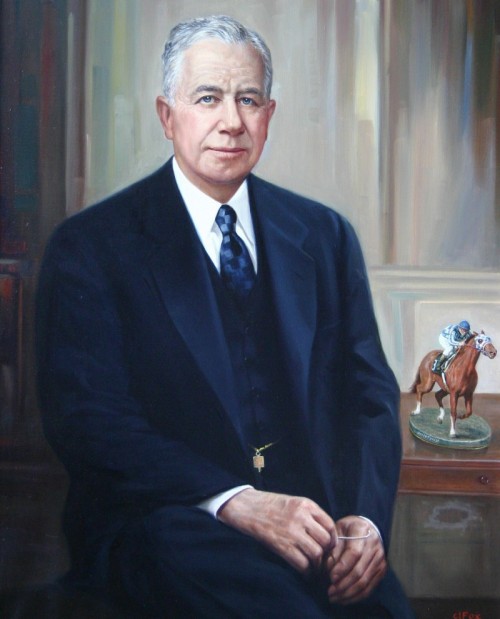The following appeared in Thoroughbred Daily News and The Blood Horse on April 22nd.
A total of sixteen individuals, led by champion Royal Delta (Empire Maker), will be inducted into the National Museum of Racing Hall of Fame Friday, Aug. 2. Other inductees include jockey Craig Perret in the contemporary category; and racehorses My Juliet (Gallant Romeo), and Waya (Fr) (Faraway Son), both selected by the Historic Review Committee. The Pillars of the Turf category sees James E. “Ted” Bassett III, Christopher T. Chenery, Richard L. “Dick” Duchossois, William S. Farish, John Hettinger, James R. Keene, Frank E. “Jimmy” Kilroe, Gladys Mills Phipps, Ogden Phipps, Helen Hay Whitney, Marylou Whitney, and Warren Wright, Sr. join the Hall of Fame. All 12 new Pillars of the Turf were chosen by the Museum’s Pillars of the Turf Committee.

Christopher T. Chenery (1888-1973) was born in Richmond, Va., and graduated from Washington and Lee University in 1909. He established the famed Meadow Stud in Virginia and was one of the founders of what became the New York Racing Association. Chenery began his involvement with racing and breeding with the purchase of a few horses in 1936. In 1939, he bought his foundation mare, Hildene, for $750. Hildene produced two of Chenery’s most important horses: Hill Prince, the 1950 Horse of the Year and a Hall of Fame member; and First Landing, champion juvenile in 1958. First Landing later sired Hall of Famer Riva Ridge, winner of the Kentucky Derby and Belmont Stakes in 1972. Chenery also owned Hall of Famer Cicada, once the world’s leading money winner among mares.
In the mid-1950s, Chenery was one of three men appointed by The Jockey Club to restructure New York racing. Along with John W. Hanes and Harry Guggenheim, Chenery organized the non-profit Greater New York Association with the idea of funneling proceeds to benefit the state. Chenery personally obtained the $30 million loan necessary to renovate New York’s racetracks. In 1965, Chenery entered a foal-sharing agreement with the Phipps family, which owned leading sire Bold Ruler. Each year, two Meadow broodmares were bred to Bold Ruler. Then, before the foals were born, they would decide by coin toss who got first choice of the two foals. In 1968, Chenery became ill, and his daughter, Penny Chenery, took charge of Meadow Stud. She chose Somethingroyal as one of the mares for breeding to Bold Ruler. In the fall of 1969, Penny Chenery lost the coin toss with Phipps, who chose the other mare’s foal. The Meadow kept Somethingroyal’s yet-to-be-born foal, Secretariat, who went on to win the 1973 Triple Crown en route to the Hall of Fame. Overall, Chenery is credited with breeding 43 stakes winners.







